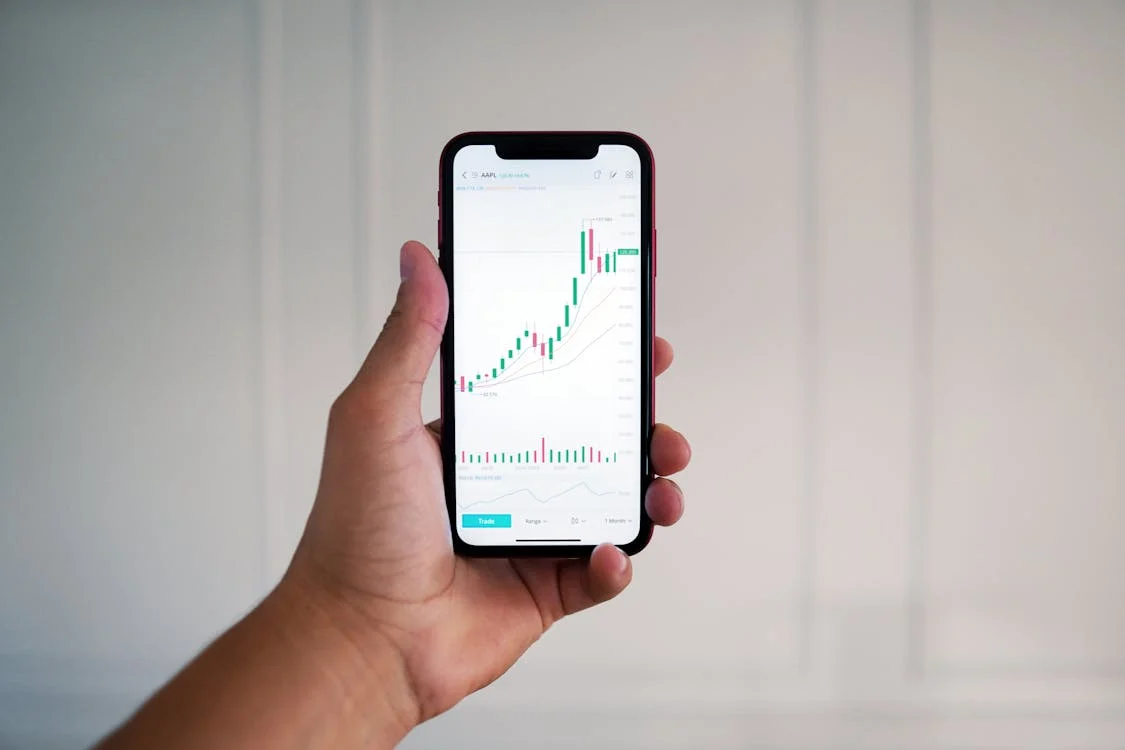Are you intrigued by the world of financial markets and seeking opportunities to grow your wealth? Contract for Difference (CFD) trading presents an enticing avenue for South Africans looking to delve into the dynamic realm of trading. With its potential for significant returns and accessibility, CFD trading has garnered increasing interest among both seasoned investors and newcomers. In this guide, we’ll explore the fundamentals of CFD trading in South Africa, its benefits, risks, and essential strategies to navigate the market successfully.
Best cfd brokers in South Africa
Understanding Trading
CFDs are derivative products that allow traders to speculate on the price movements of various financial instruments, including stocks, commodities, currencies, and indices, without owning the underlying asset. Instead, traders enter into contracts with brokers to exchange the difference in the asset’s price between the opening and closing trades.
Types of CFD Trading in South Africa
Stock CFD Trading
Stock CFD allows investors to trade on the price movements of individual stocks without owning the underlying shares. In South Africa, traders can access a wide range of local and international stocks through CFDs, enabling them to take advantage of price fluctuations in companies listed on major stock exchanges such as the Johannesburg Stock Exchange (JSE) and global exchanges like the New York Stock Exchange (NYSE) and the London Stock Exchange (LSE).
Forex CFD Trading
Forex CFD involves speculating on the exchange rate movements between currency pairs. South Africa, being a hub for forex trading, provides traders with access to a plethora of currency pairs, including major, minor, and exotic pairs. With the forex market being one of the most liquid and volatile markets globally, forex CFD trading in South Africa offers ample opportunities for traders to profit from currency fluctuations.
Commodity CFD Trading
Commodity CFD trading allows investors to trade on the price movements of commodities such as gold, silver, oil, and agricultural products without physically owning the assets. South Africa, known for its rich natural resources, provides traders with exposure to various commodities through CFDs. Whether it’s precious metals, energy commodities, or agricultural commodities, traders can take advantage of price movements in these markets using commodity CFDs.
Index CFD Trading
Index CFD trading involves speculating on the price movements of stock market indices, such as the FTSE 100, S&P 500, or the South African FTSE/JSE Top 40 Index. Traders can capitalize on the overall performance of the stock market by trading index CFDs, which offer a diversified exposure to a basket of stocks within a specific market or sector. In South Africa, index CFDs are popular among investors seeking to hedge their portfolios or capitalize on broad market trends.
Cryptocurrency CFD Trading
Cryptocurrency CFD trading allows investors to speculate on the price movements of digital currencies such as Bitcoin, Ethereum, and Ripple without owning the underlying coins. South Africa has witnessed a surge in cryptocurrency trading activity, and CFDs offer traders a flexible way to participate in this burgeoning market. With cryptocurrency CFDs, traders can benefit from the price volatility of digital assets without the complexities of owning and storing cryptocurrencies.

Benefits of CFD Trading in South Africa
- Leverage: CFDs enable traders to amplify their market exposure with leverage, allowing them to control a more substantial position with a relatively small capital outlay.
- Diverse Asset Classes: From global stocks to forex pairs and commodities, CFD offers a wide range of markets, providing ample opportunities for diversification.
- Short Selling: Unlike traditional stock trading, CFDs allow traders to profit from both rising and falling markets by going long (buying) or short (selling) positions.
- 24/5 Market Access: With CFD trading, South African investors can access global markets and trade around the clock, five days a week, providing flexibility and the potential to capitalize on market movements at any time.
Risks Associated with CFD Trading
While CFD trading offers lucrative prospects, it’s crucial to acknowledge the associated risks:
- Leverage Risk: While leverage magnifies potential profits, it also amplifies losses, leading to rapid capital depletion if trades move against you.
- Market Volatility: Financial markets are inherently volatile, and CFD intensifies this volatility due to leverage, making it essential for traders to employ risk management strategies.
- Counterparty Risk: CFD trades are executed with brokers, exposing traders to counterparty risk if the broker fails to fulfill its obligations.

Essential Strategies for Success
- Risk Management: Implement robust risk management techniques such as setting stop-loss orders and adhering to position sizing principles to mitigate potential losses.
- Research and Analysis: Conduct thorough research and utilize technical and fundamental analysis to make informed trading decisions.
- Demo Trading: Practice CFD using demo accounts offered by brokers to familiarize yourself with the platform and refine your strategies without risking real capital.
- Continuous Learning: Stay updated with market trends, economic indicators, and geopolitical events that can influence asset prices, and continuously enhance your trading skills through educational resources and seminars.
(FAQs) About CFD Trading in South Africa
What is CFD trading?
Contract for Difference (CFD) trading is a form of derivative trading that enables investors to speculate on the price movements of various financial instruments, such as stocks, commodities, currencies, and indices, without owning the underlying asset. Instead, traders enter into contracts with brokers to exchange the difference in the asset’s price between the opening and closing trades.
Is CFD trading legal in South Africa?
Yes, CFD trading is legal in South Africa. The country has a well-regulated financial market overseen by the Financial Sector Conduct Authority (FSCA), which regulates and supervises financial services providers, including CFD brokers. It’s important for traders to choose regulated brokers to ensure the safety of their funds and adherence to regulatory standards.
What are the advantages of CFD trading?
- CFD trading offers several benefits, including:
- Leverage, which allows traders to control larger positions with a smaller capital outlay.
- Access to a wide range of markets, including stocks, forex, commodities, and indices.
- The ability to profit from both rising and falling markets through long and short positions.
- 24/5 market access, providing flexibility to trade at any time during the trading week.
What are the risks associated with CFD?
- While CFD offers lucrative opportunities, it also comes with risks, including:
- Leverage risk, which magnifies both profits and losses.
- Market volatility, which can lead to rapid price fluctuations.
- Counterparty risk, as traders enter into contracts with brokers who may fail to fulfill their obligations.
How can I mitigate risks in CFD?
- To mitigate risks in CFD, it’s essential to implement robust risk management strategies, such as:
- Setting stop-loss orders to limit potential losses.
- Adhering to proper position sizing principles.
- Diversifying your trading portfolio to spread risk.
- Utilizing risk management tools provided by brokers, such as guaranteed stop-loss orders.
Can I trade CFDs on margin in South Africa?
Yes, traders in South Africa can trade CFDs on margin, which means they can control larger positions with a smaller capital outlay. However, it’s important to use leverage cautiously and be aware of the associated risks.
Are there taxes on CFD profits in South Africa?
- In South Africa, CFD profits are subject to capital gains tax (CGT). Traders are required to report their trading profits to the South African Revenue Service (SARS) and pay CGT on any gains realized from CFD.
How can I get started with CFD in South Africa?
- To get started with CFD in South Africa, follow these steps:
- Research and choose a reputable and regulated CFD broker.
- Open a trading account and complete the necessary verification process.
- Fund your trading account with the required capital.
- Familiarize yourself with the trading platform and practice trading using demo accounts.
- Develop a trading strategy and implement risk management techniques.
- Start trading CFDs in South African and global markets, always staying informed and continuously learning to improve your skills.
Conclusion
CFD trading presents an enticing opportunity for South African investors to participate in global financial markets and potentially generate significant returns. However, it’s essential to approach CFD trading with caution, acknowledging the associated risks and implementing robust risk management strategies.










